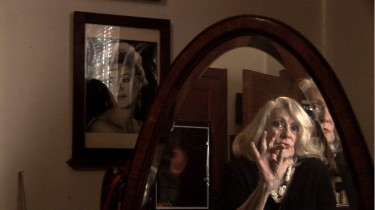 Back to selection
Back to selection
THE MEXICAN WAVE ROLLS IN

Mexico remains a heavily stratified society, despite the strides made over the past 50 years in bridging an enormous socio-economic gap. A non-centralized wave of films has been building there over the past decade, and cinema, the most accessible of art forms, reflects the divide. One could argue that the directors make a choice: poverty or the bourgeoisie.
You can observe the schism for yourself in the excellent 10-film series GenMex: Recent Films from Mexico, running September 9-22 at New York’s Anthology Film Archives. The exhibition begins with a one-week run of Eugenio Polgovsky’s The Inheritors, September 9-15. The other titles each screen twice from September 16-22. Four that stand out for me strongly address the rupture. The first two described below are set among the poor, one without hope (The Inheritors), the other a tad more optimistic (Northless). The third (Parque Via) and fourth (Intimacies of Shakespeare and Victor Hugo) take place in middle- and upper-middle-class milieus, even if the have-nots occasionally rear their ugly heads.
The Inheritors / Eugenio Polgovsky (2008)
An accomplished photographer and cinematographer, Polgovsky proved in Tropic of Cancer (2004) his ability to capture in gorgeous visual images, without condescension, the day-to-day minutiae of the rural poor, who hunt down wild animals to sell at the side of the highway. In the beautiful but shocking The Inheritors, there is even less dynamism. Polgovsky follows closely the mundane work—picking vegetables, making bricks, tilling the soil–of very young children in four Mexican provinces.
He compensates with asymmetrical framing, a moving camera, and rapid montages of faces, some young, others extremely old. Without narration, we understand the implication: These kids are fated to endure harsh lives similar to those of their grandparents and great-grandparents. Occasional organ-grinder-like carnival music and dancing punctuate the monotony.
Polgovsky never overaestheticizes. He endows these youths with a grace the outside world would never grant them. In order to achieve this in a film in which the subjects appear almost unaware of a camera in their midst, he spent a lot of time among them and earned their trust. He pulls the lower depths higher, even if it’s but a temporary respite.
Northless / Rigoberto Perezcano (2009)
In his first feature, Northless, Perezcano turns on its head what has become something of a genre in Mexico: An immigrant crosses the border into the U.S.to earn much more money than he could have ever imagined at home. Andres is a naïve young married man from Oaxaca who gets stuck inTijuana after a couple of failed attempts to scale the wall. There he works in a convenience store, where he has affairs with both the proprietress and her assistant. Neither of the women have heard from their husbands since they joined the American work force. Along with an older male friend of the owner, they form a makeshift family. It is a temporary arrangement, its demise dictated by economics more than anything else. In order to support his wife and children, Andres must keep trying to sneak past the border guards.
Perezcano shoots details of their unexciting lives without rushing toward hyperdramatic plot points. The novel conclusion leaves room for hope, yet we have a sense of Andres’s bleak future should he succeed in his goal.
Parque Via / Enrique Rivero (2008)
Rivero sets the minimalist Parque Via in the large, nearly vacant home of an elegant, wealthy widow. The only resident is Beto, guard of the house, a longtime servant who no longer knows the outside world. When the woman does come by, they treat each other with mutual, but solidly class-defined, affection. Everything is separate and clearly unequal. He bides his time sitting around, performing some chores, and occasionally inviting over a prostitute from his own class for sex and companionship.
When the owner tells him she is selling the place, his world crashes around him. This quiet film takes on the trappings of a thriller, and Rivero shocks even the most blasé viewer. He shows how far someone will go to maintain a comfort zone. The film tackles the issue of class distinction in a unique manner, one both violent and darkly comic. And a query to anyone who knows: Is the woman’s spiraling bun, shown in close-up and key to Beto’s surprising action, a nod to Hitchcock’s Vertigo?

Intimacies of Shakespeare and Victor Hugo / Yulene Olaizola (2009)
In her first documentary, Olaizola films her eccentric grandmother, Rosa Elena Carbajal, in the memorabilia–filled home she still lives in at the corner of Shakespeare and Victor Hugo in an upscale neighborhood. There she ran a boarding house for years. The director has a grip on the bond between the elderly, blonde-bewigged woman and her devoted maid, but the ostensible subject is the innocent relationship between Grandma and a handsome young lodger named Jorge of mysterious origins.
A talented painter and poet, Jorge, who was gay, turned out to be a hustler and occasional transvestite. None of this bothered his landlady, who explains that the two had a “mental” connection; she sees herself as his muse. Olaizola points out that, at the time Jorge moved in, he was the same age as the grandmother’s beloved brother was when he died in an accident. The filmmaker also interviews men who had known him. Unfortunately, Jorge was also severely schizophrenic, and evidence points to his having been the serial killer responsible for the deaths of 13 young women before he died as a result of a fire he set to burn evidence. Olaizola didn’t have to go too far to find a fantastic real-life topic.
